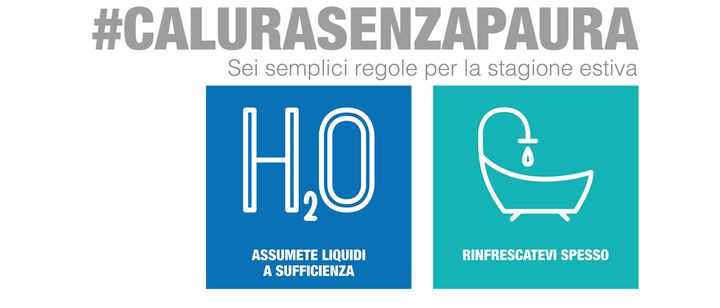#calurasenzapaura: six simple rules for everyone
Summer is a wonderful season, but its arrival reminds us that even in Ticino, heatwaves can occur.

The national strategy for climate change adaptation foresees an increase in the frequency, intensity, and duration of heatwaves in the coming years. Ticino is ready to effectively and promptly address these events, involving all actors present in the region.
The #calurasenzapaura campaign raises awareness among the population about simple rules to cope with a hot summer. In fact, the scorching summers of 2003 and 2015 remind the public that prolonged heatwaves can pose a health risk, especially to the most vulnerable groups. While we cannot predict the exact temperatures for the summer, it is important to be prepared to address prolonged periods of extreme heat promptly and effectively, even with a future perspective.
The six rules
1. Drink enough liquids
With high temperatures, it is important to stay hydrated, especially with cool water but also fruit and vegetable juices, to compensate for the body's loss of salt and water. It is recommended to drink at least 1.5 to 2 liters of fluids per day.
2. Refresh frequently
Cool down with lukewarm showers and baths, which will help lower your body temperature and make it easier to tolerate heatwaves.
3. Wear light-colored and lightweight clothes
Wear loose, light-colored, and lightweight clothes to promote sweating and heat dissipation.
4. Limit outdoor activities
Focus outdoor activities during the cooler hours of the day, in the morning and evening.
5. Protect yourself from solar radiation
Avoid or limit direct exposure to the sun. Prefer shaded areas, and if not possible, wear suitable clothing: hats, sunglasses, and high SPF sunscreen.
6. Eat fruits and vegetables
Incorporate fruits and vegetables into your diet. Melons, cucumbers, tomatoes, strawberries, peaches, and similar foods are an important source of liquids and have a cooling effect.
The English version of this page was created with the aid of automatic translation tools and may contain errors and omissions.
The original version is the page in Italian.